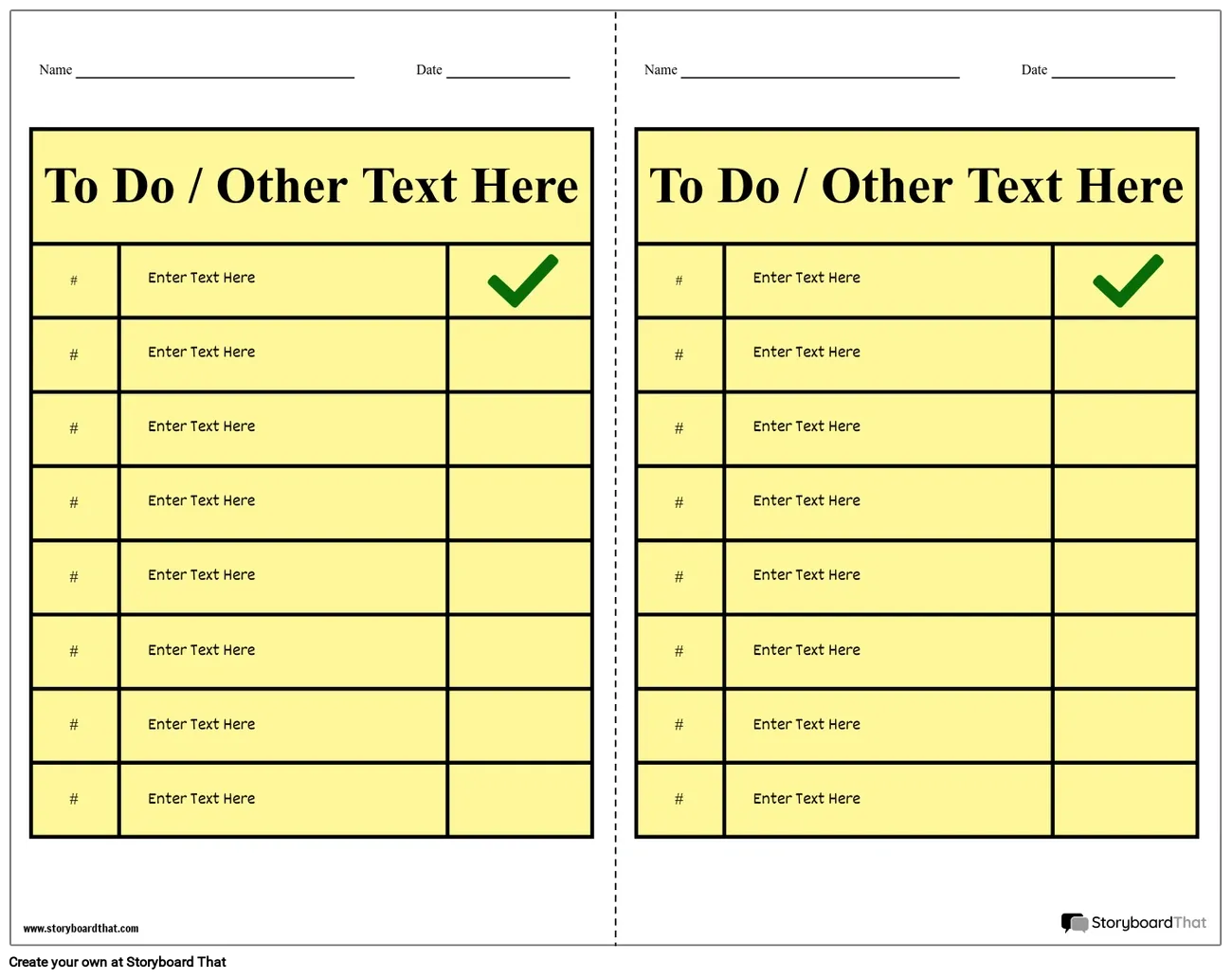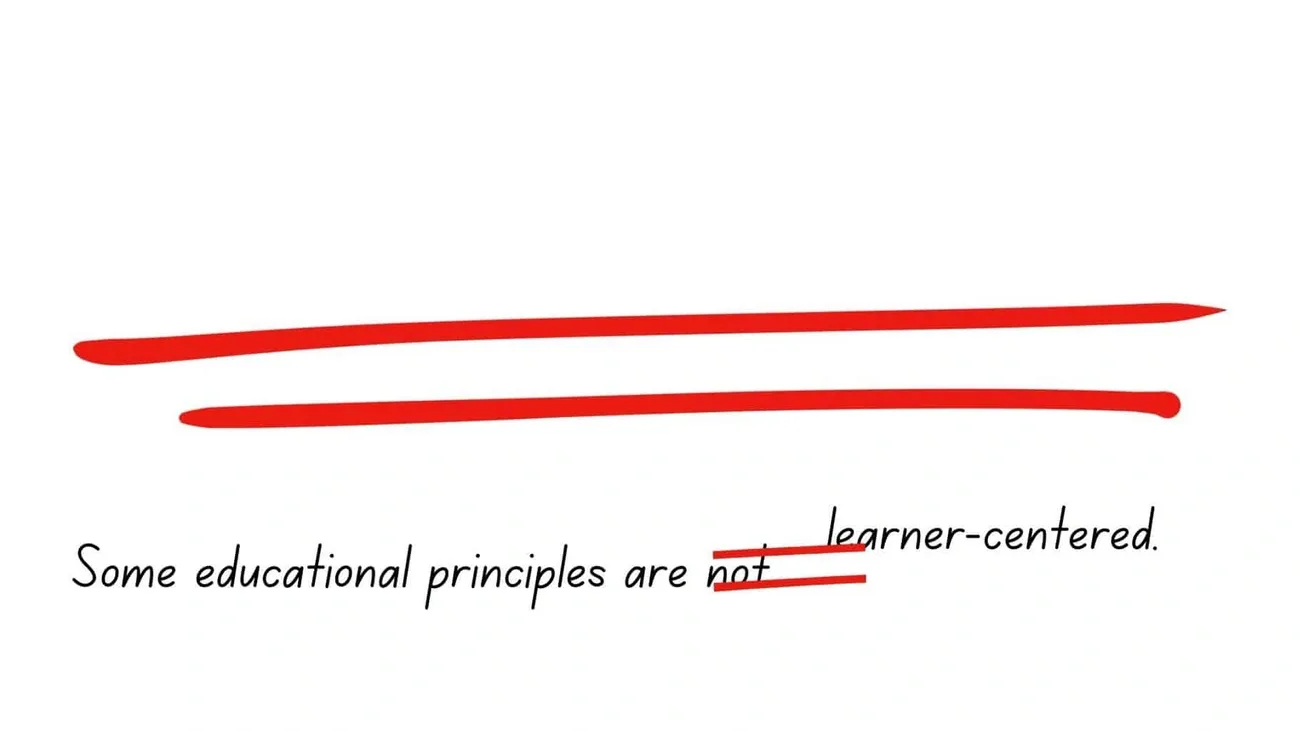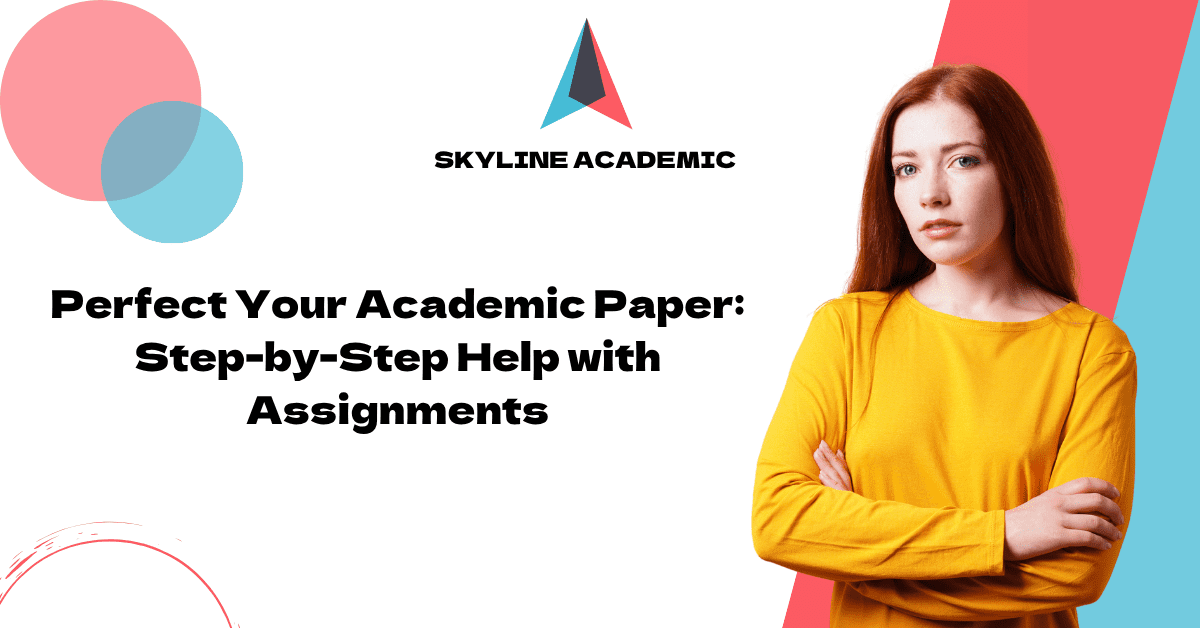Perfect Your Academic Paper: Step-by-Step Help with Assignments [+ Free Checklist]
Did you know that getting help with assignments can substantially improve your academic papers through better self-editing skills? Experts say a smart approach to writing and revising leads to academic success.
Students often struggle with university assignments, but the right help can make all the difference. Online Assignment Coaching & Feedback has come a long way. AI-powered writing tools now support multiple English dialects – US, UK, Australian, and Canadian English. A reliable assignment helper gives you valuable feedback on your paper’s strengths and weaknesses. Advanced AI writing assistants can spot grammar errors in writing styles of all types.
Creating a good academic paper needs a clear introduction, body, and conclusion that flow together naturally. Your thesis statement must be specific and arguable to grab your reader’s attention. This piece shows you how to excel at academic writing. You’ll learn everything from understanding the assignment to polishing your paper with professional editing techniques.
Want to revolutionize your academic writing process? Let’s take a closer look at the key steps that will help you create exceptional papers every time!
Understand the Assignment Before You Start

Image Source: Storyboard That
“Research is something that everyone can do, and everyone ought to do. It is simply collecting information and thinking systematically about it.”
— Raewyn Connell, Australian sociologist, former professor at the University of Sydney
Understand the Assignment Before You Start
The most significant first step in any academic paper starts with really understanding what your instructor expects. Reading the assignment right when you get it saves time and prevents stress later [1]. Students often skim instructions, miss important elements, or underestimate their task’s complexity.
Clarify the task and expectations
Each assignment has a specific purpose—to persuade, explain, analyze, or reflect. Your paper will excel when you identify this purpose before writing anything [2]. Look for key terms in your instructions that point to concepts you need to address [2]. The grading rubric at the end of assignment instructions serves as your requirements checklist [2].
Complex assignments need an organizational framework in your document that lines up with the assignment prompt [2]. This framework helps you address all requirements and makes writing easier.
Break down the prompt into parts
Here’s how to understand your assignment better:
- Read the prompt several times [3]
- Highlight all action words (analyze, compare, discuss, explain) [4]
- Focus your thinking by summing up the topic in a few words [5]
- Number the required steps or parts [5]
- Know what your audience expects [4]
Watch for verbs like “analyze” or “argue” that show the type of thinking you need [4]. Check if you should use only course materials or outside sources [4].
Use Assignment Coaching & Feedback if needed
Feeling unsure about assignment requirements? Ask your instructor to clarify things [6]. They want to help you understand before you submit your paper [6].
Assignment help services are a great way to get expert guidance with complex academic tasks. Subject matter specialists can break down difficult concepts simply [7]. Skyline Academic’s assignment helpers excel at making complex prompts clear and offering customized guidance that matches your assignment challenges.
Note that getting assignment help isn’t just about finishing work—it helps you understand the subject better [7]. The right help lets you manage your schedule and create well-researched, properly formatted papers [7].
Revise for Structure and Clarity
“Science is a way of thinking much more than it is a body of knowledge.”
— Carl Sagan, Astronomer, astrophysicist, and science communicator
Revise for Structure and Clarity
Your first draft is ready. Now comes the significant step to dissect your paper’s structure and clarity. This revision phase will give a solid foundation to your ideas and arguments.
Check your thesis and main argument
Take an honest look at your thesis statement. Ask yourself:
- Does my thesis make a specific, debatable point instead of a general observation?
- Does it present a sophisticated, thought-provoking point?
- Do my claims in the thesis have support throughout the paper?
Your thesis should present a complex argument that shows you’ve thought over complications and contradictions. So you might need to refine your original thesis based on what you found while writing.
Ensure logical flow between paragraphs
Your paper needs coherent paragraphs that connect well. Each paragraph should flow naturally from the previous one to guide your reader smoothly. The “old-to-new” approach works well – start with familiar information before introducing new concepts. This natural progression helps readers follow your thoughts easily.
Use topic sentences and transitions
Topic sentences work like signposts that preview each paragraph’s content. These sentences should:
- Connect directly to your thesis
- Present the main idea of that paragraph
- Make arguments instead of just stating facts
Good transitions between paragraphs weave ideas together and show relationships between concepts. Skyline Academic’s assignment helpers can guide you to create smooth transitions that boost clarity if you need help with structure.
Trim repetition and off-topic content
Your writing needs a critical eye to spot redundant information and tangential ideas. Yes, it is true that concise writing communicates better than wordy explanations. Remove sentences that don’t support your thesis or help your argument. On top of that, it helps to watch for patterns like:
- Repeated sentence structures
- Multiple adjectives together
- Vague words like “things” or “stuff”
Online assignment help tools can spot these patterns and offer ways to make your academic papers stronger.
Edit for Grammar, Style, and Voice

Image Source: Grammarist
Edit for Grammar, Style, and Voice
Your academic paper needs fine-tuning of grammatical precision and stylistic elements after polishing structure and clarity. This vital step can turn good writing into excellent writing.
Fix sentence fragments and run-ons
Readers get confused by sentence fragments that lack a subject, verb, or complete thought. Each sentence should stand alone to avoid fragments. Run-on sentences happen when complete thoughts don’t connect properly. Here’s how to fix run-ons:
- Split them into separate sentences with periods
- Place semicolons between related independent clauses
- Add coordinating conjunctions (for, and, nor, but, or, yet, so) with commas
- Create dependent clauses using subordinating conjunctions
Use active voice where possible
Direct, clear and concise writing comes from active voice. “Researchers conducted the experiment” works better than “The experiment was conducted by researchers.” Active voice needs fewer words to convey the same meaning and makes writing more engaging. Passive voice still fits in methodology sections that highlight research over researchers.
Check subject-verb agreement
Subjects must match their verbs in number. Watch out for errors with:
- Prepositional phrases between subjects and verbs
- Collective nouns (team, committee, family)
- Indefinite pronouns (everyone, somebody, neither)
Avoid vague or filler words
Vague language makes academic writing weak and potentially misleading. Specific nouns should replace generic terms like “thing,” “stuff,” or “area.” Exact figures strengthen your argument better than imprecise terms like “several” or “frequently.”
Use consistent verb tense
Pick one main tense for your discussion and change it only when time frames shift. Present tense works for ongoing research and stating facts. Past tense fits completed studies and historical events.
Skyline Academic’s assignment helpers offer expert editing services to catch subtle errors you might miss while self-editing. Their AI tools can spot tense inconsistencies, subject-verb disagreements, and overuse of passive voice. These tools help you submit polished, professional academic papers.
Use Tools and Checklists to Finalize
Use Tools and Checklists to Finalize
Technology gives you powerful tools to perfect your academic papers beyond manual editing. These final steps will help your assignment reach its full potential after you’ve mastered structure and grammar.
Read aloud or use text-to-speech
Text-to-speech (TTS) technology lets you catch errors your eyes might miss. It converts your written work into audio so you can review while doing other tasks. Students find it easier to concentrate and stay focused when they hear their dense academic content read back to them.
TTS does more than find errors. It helps you understand and remember content better because you’re not distracted by formatting. Many students discover that reading while listening creates a learning experience that works well for different learning styles.
Try AI to help with assignments
AI writing assistants are a great way to get support during editing. Tools like Grammarly catch spelling and grammar errors, but you should check all suggested changes since AI might not understand technical terms correctly. The Hemingway Editor shows which sentences are hard to read, suggests clearer options, and finds passive voice.
AI can generate study quizzes, create lecture summaries, and suggest counter-arguments you might have missed. Note that AI works best when it supports your critical thinking – it shouldn’t replace it.
Use a free editing checklist
A good academic writing checklist guides you through final reviews systematically. These tools help verify that your essay meets scholarly standards for:
- Punctuation and capitalization
- Sentence structure and grammar
- Logical flow and organization
- Proper citation formatting
Ask a peer or assignment helper to review
A fresh perspective often reveals issues you miss after writing for hours. Academic editing networks connect you with subject experts who can help with your assignments. These specialists excel at finding structural weaknesses, unclear arguments, and grammar problems that might slip through.
Professional assignment helpers understand what different academic disciplines require, which ensures your paper meets your assignment’s exact requirements.
Conclusion
Perfecting Your Academic Papers: The Final Word
Academic writing mastery demands time, dedication, and the right approach. This piece explores key steps that turn ordinary assignments into polished scholarly work. A clear understanding of your assignment prevents frustration and helps meet your instructor’s expectations.
Quality academic writing has revision at its core. Your papers become stronger when you refine their structure, improve clarity, and pay close attention to grammar and style. On top of that, it helps to use technology tools like text-to-speech and AI assistants that streamline editing and catch hidden errors.
Note that asking for help shows wisdom, not weakness. Successful students connect with Assignment Coaching & Feedback to build better writing habits. You can do this and be organized by joining the Skyline Academic Editing network that gives you complete assignment help.
The path to writing excellence needs effort, but its benefits go way beyond the reach and influence of good grades. Critical thinking, clear communication, and attention to detail are skills that will serve you well in your academic and professional life.
This step-by-step guide and free checklist give you everything you need to create exceptional academic papers. Put these techniques to work today and watch your writing change from adequate to outstanding!
FAQs
Q1. How can I effectively understand my assignment before starting?
Read the prompt multiple times, highlight key action words, and break down the assignment into parts. If you’re still unsure, don’t hesitate to ask your instructor for clarification or seek Assignment Coaching & Feedback from experts.
Q2. What are some key strategies for revising the structure of my academic paper?
Focus on checking your thesis statement, ensuring logical flow between paragraphs, using strong topic sentences and transitions, and trimming repetitive or off-topic content. This helps create a coherent and well-structured argument.
Q3. How can I improve the grammar and style of my academic writing?
Edit for sentence structure, use active voice where appropriate, ensure subject-verb agreement, avoid vague language, and maintain consistent verb tense. Consider using AI-powered tools or seeking expert help for comprehensive grammar assistance.
Q4. What tools can I use to finalize my academic paper?
Utilize text-to-speech technology to catch errors, try AI writing assistants for grammar checks, use free editing checklists, and consider asking a peer or professional assignment helper to review your work for fresh perspectives.
Q5. Why is seeking assignment help beneficial for academic writing?
Assignment Coaching & Feedback can provide expert guidance, clarify complex prompts, offer personalized feedback, and help you develop better writing habits. It’s a strategic approach to improving your academic performance and developing critical thinking skills.
References
[1] – https://writing.wisc.edu/handbook/process/interpreting-writing-assignments-from-your-courses/
[2] – https://writingcenter.uagc.edu/understanding-your-assignment
[3] – https://owl.purdue.edu/owl/general_writing/common_writing_assignments/understanding_writing_assignments.html
[4] – https://writingcenter.fas.harvard.edu/tips-reading-assignment-prompt
[5] – https://human.libretexts.org/Bookshelves/Composition/Introductory_Composition/Writing_and_Reading_Rhetoric_Manual__What_Why_and_How_3e/11%3A_Timed_Writing/11.02%3A_Breaking_Down_a_Prompt
[6] – https://writingcenter.unc.edu/tips-and-tools/understanding-assignments/
[7] – https://www.ozassignments.com/blog/how-assignment-help-services-assist-with-assignments/
